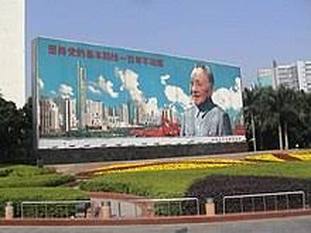China under Deng Xiaoping
'Keep a cool head and maintain a low profile. Never take the lead - but aim to do something big.'
'Keep a cool head and maintain a low profile. Never take the lead - but aim to do something big.'
| ezra_vogel_on_deng.docx | |
| File Size: | 19 kb |
| File Type: | docx |

| economic_chapter.pdf | |
| File Size: | 17281 kb |
| File Type: | |
| deng_and_economic_policies.docx | |
| File Size: | 13 kb |
| File Type: | docx |
2. Download the "Political Reforms under Deng worksheet". After you have done the lesson plan below on the 5th modernisation, fill in the righthand column of the worksheet, as you should now know more about each event.
| ||||||||||||||||||||
| 5th_modernisation_lesson_plan_on_deng_xiao_ping.pdf | |
| File Size: | 99 kb |
| File Type: | |
| i_t_happened_in_tiananmen_square_video_worksheet.docx | |
| File Size: | 19 kb |
| File Type: | docx |